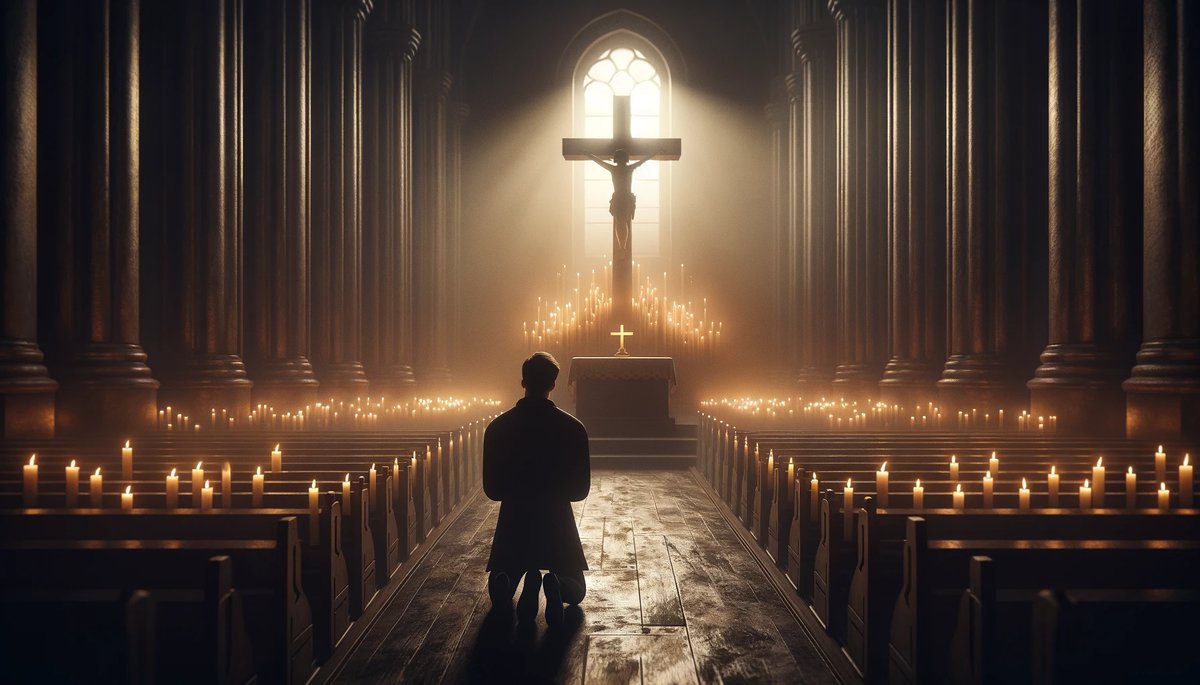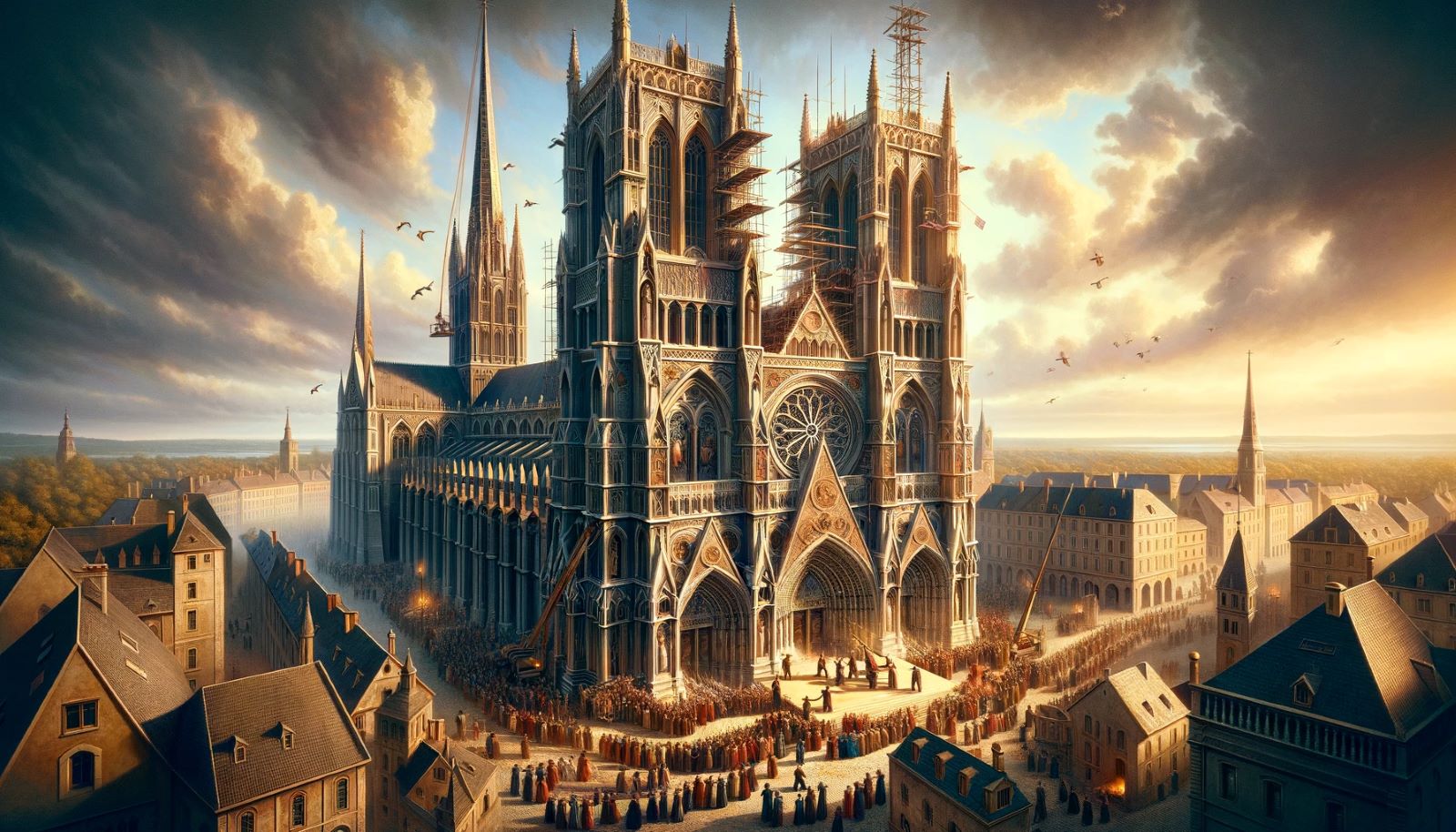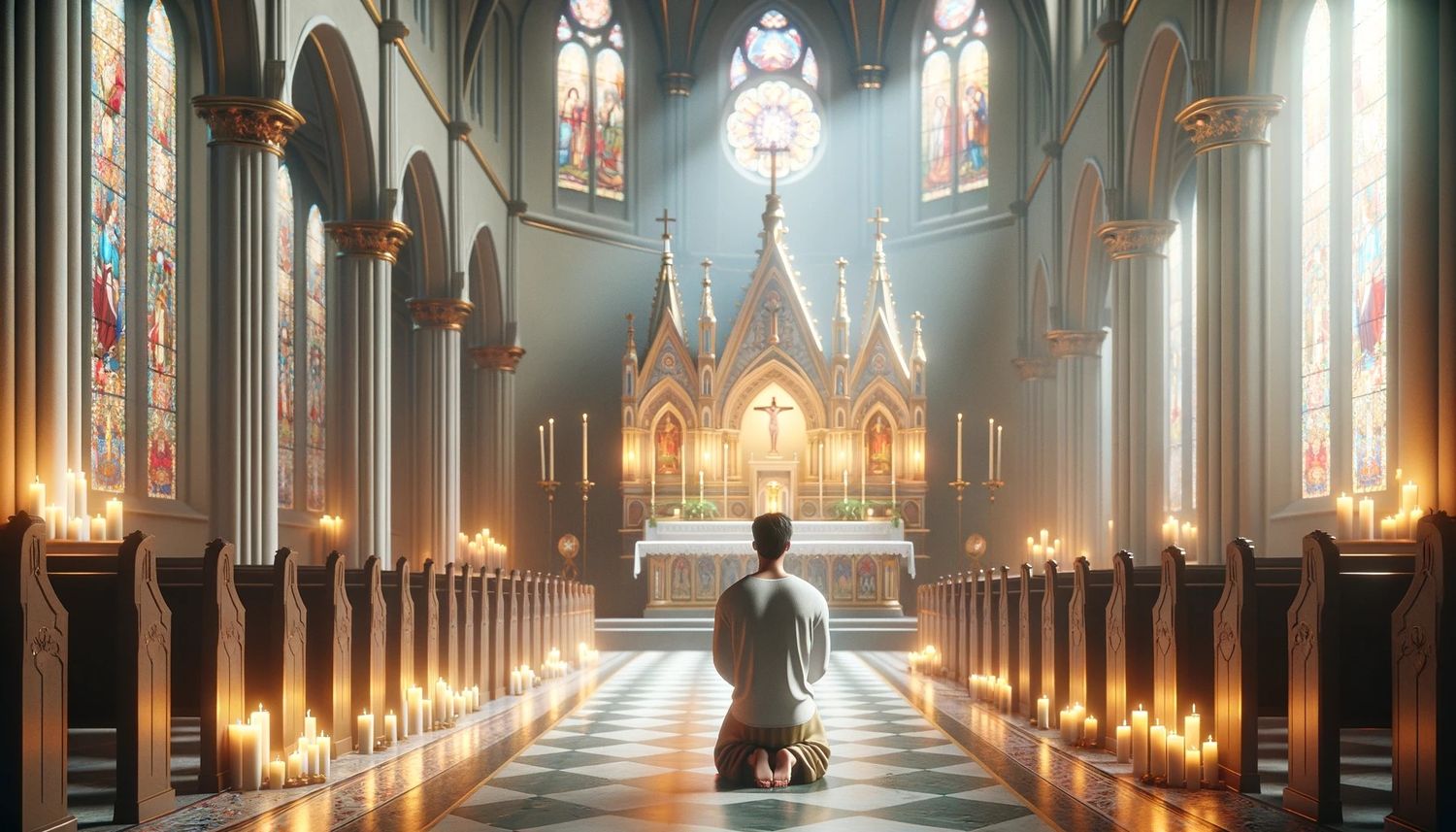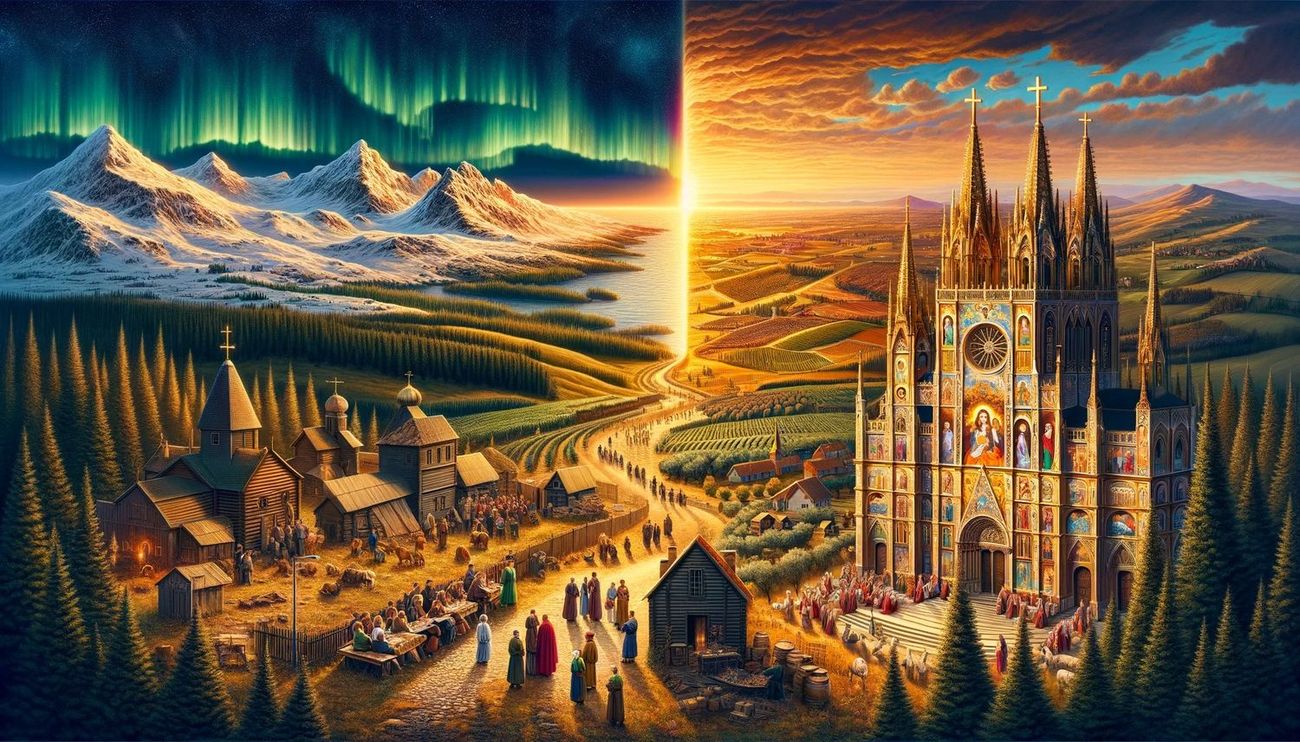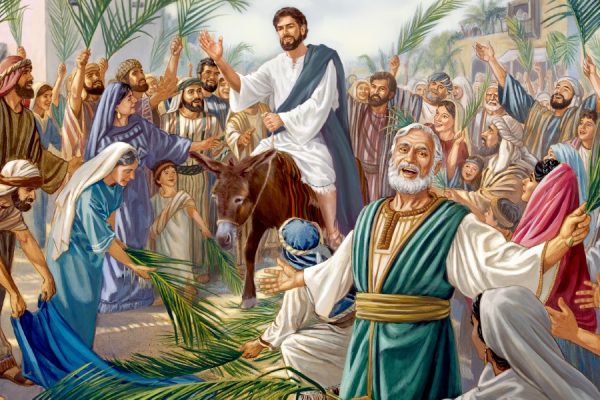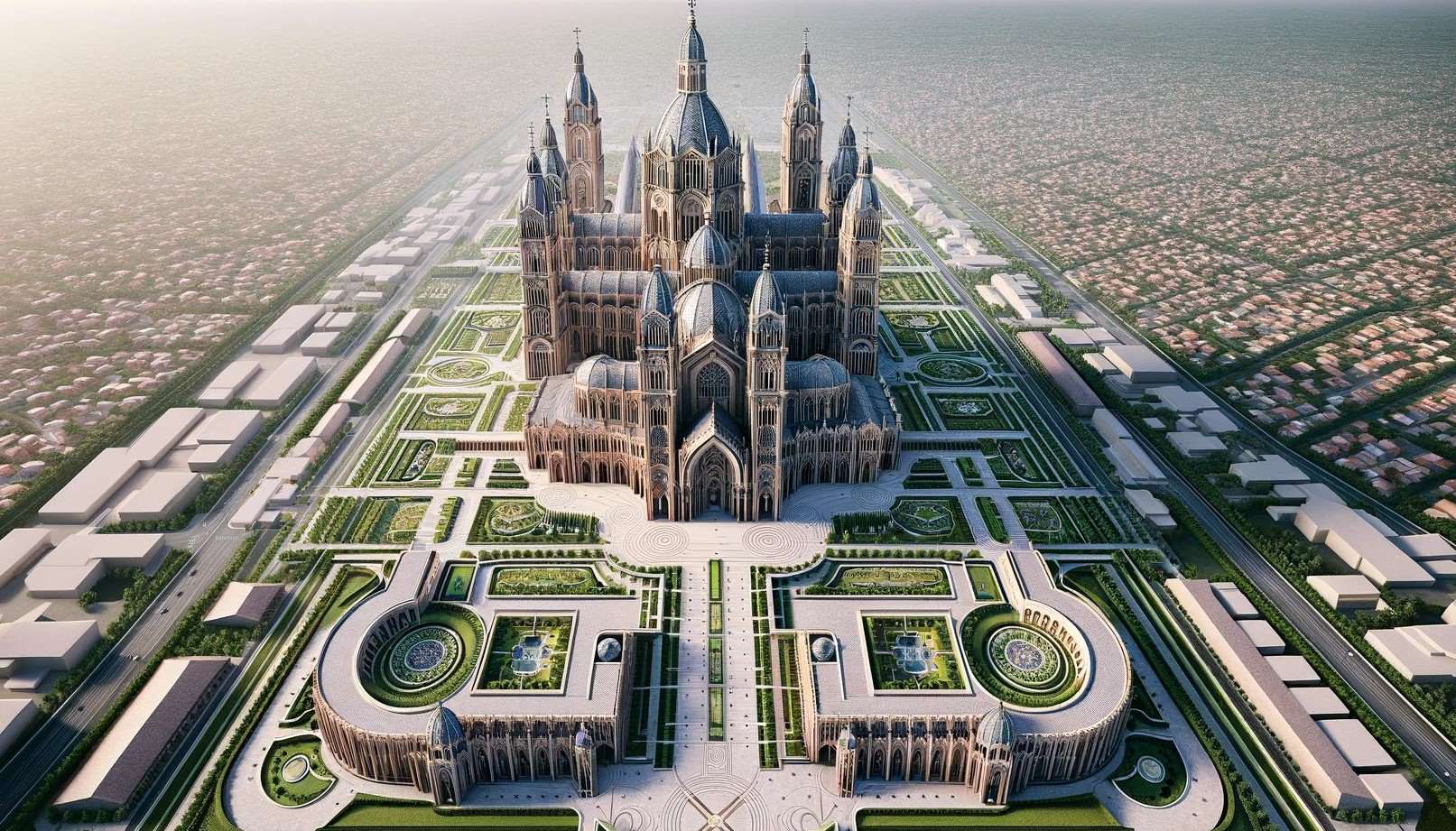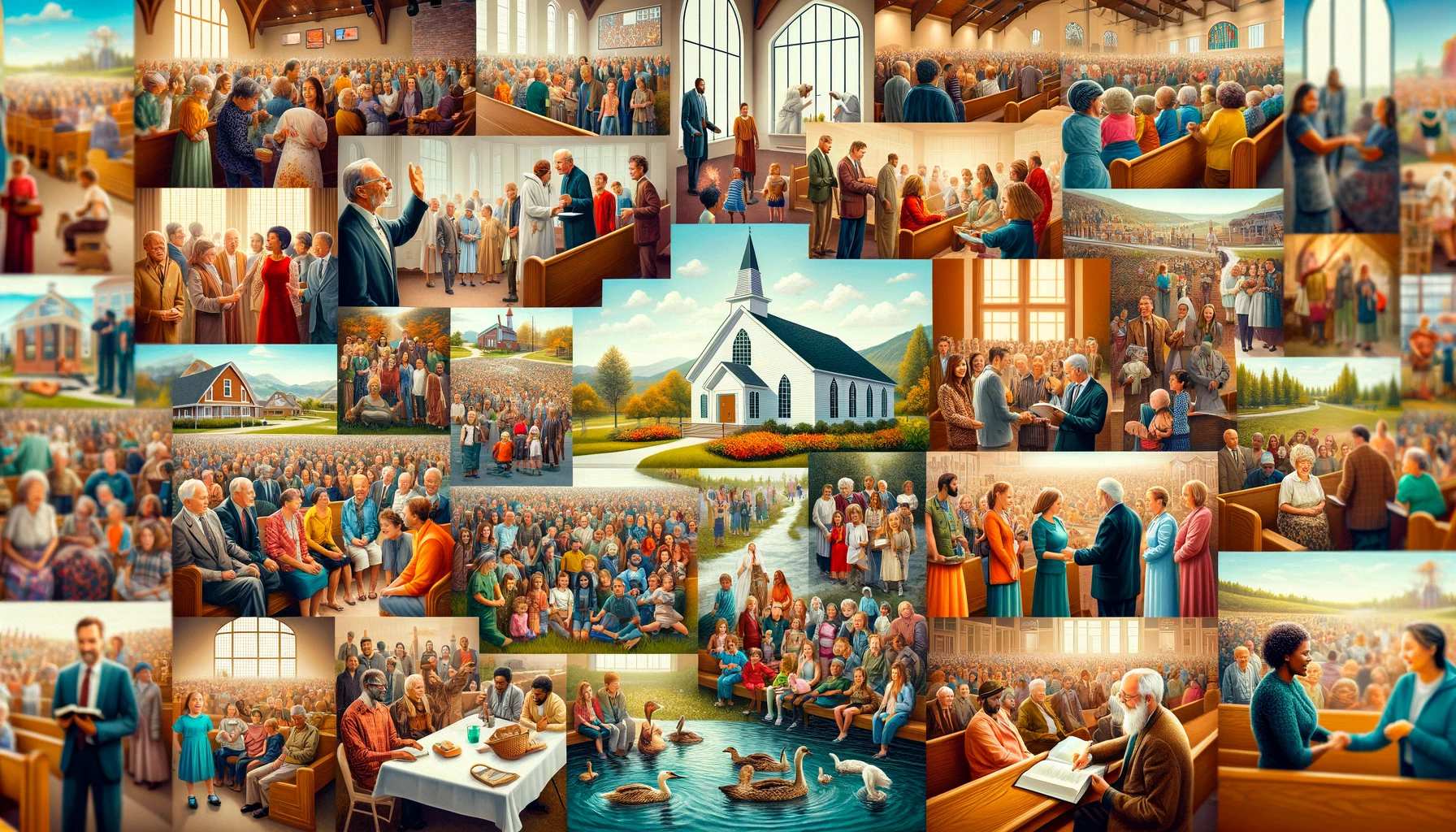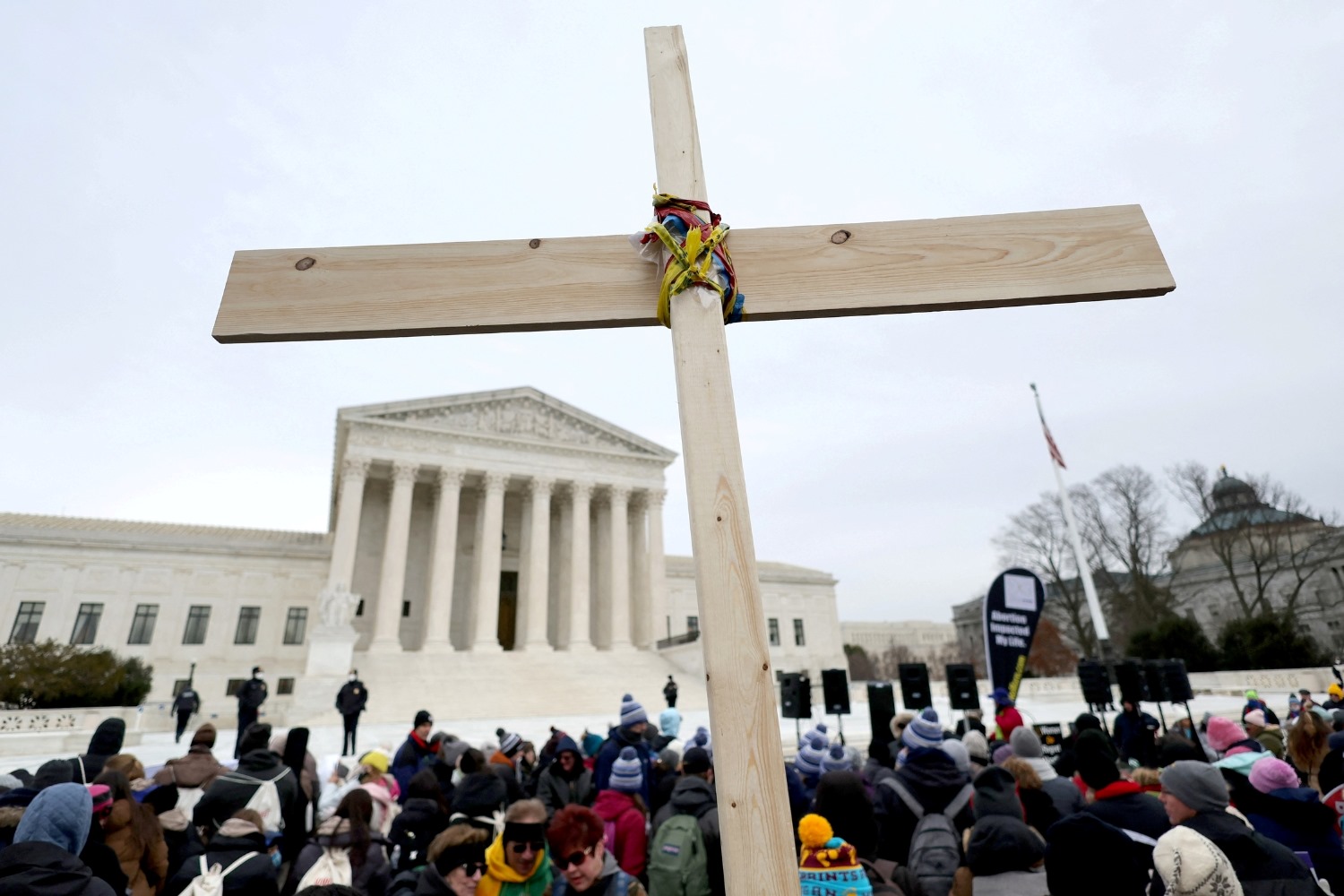Home>Theology and Spirituality>How Was Catholicism Significant To State Building In Europe?
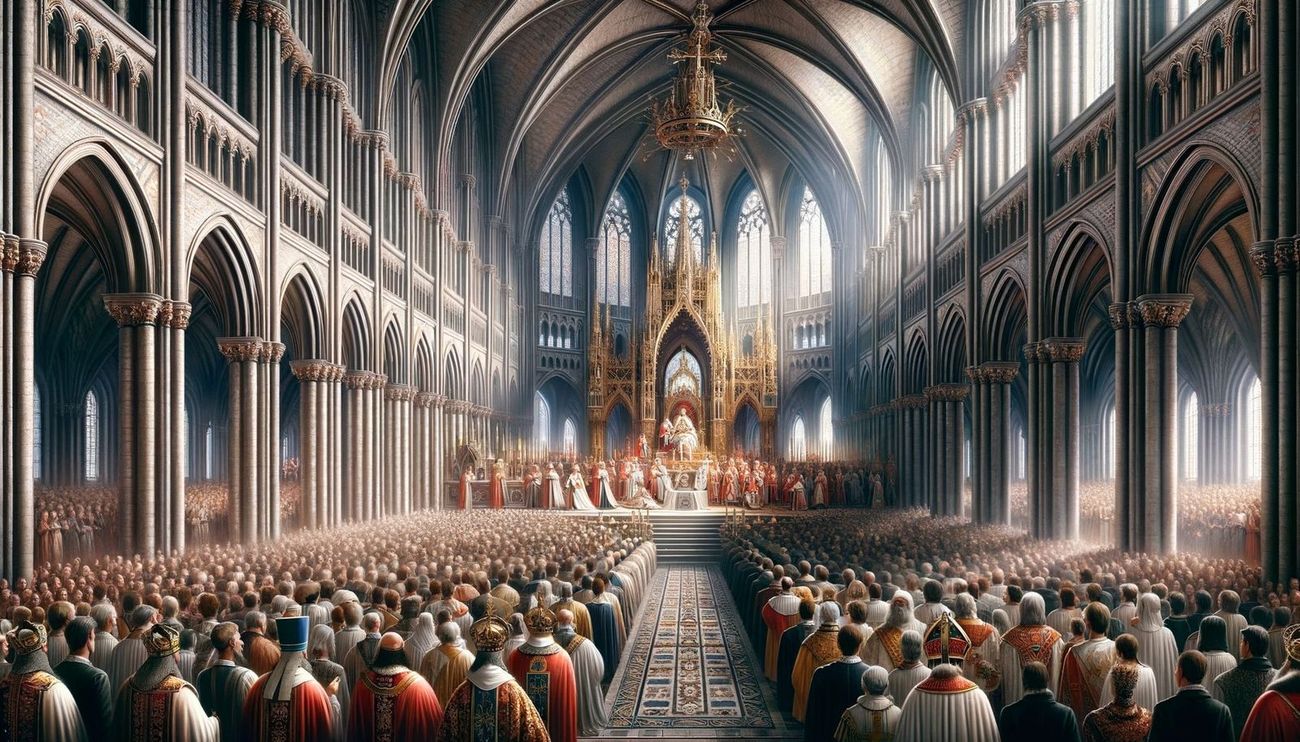

Theology and Spirituality
How Was Catholicism Significant To State Building In Europe?
Published: February 15, 2024
Ericka Andersen, an editor at Christian.net, expertly merges digital strategy with content creation, focusing on faith and societal issues. Her communication skills enhance the platform's engaging narratives, fostering meaningful dialogue on belief's impact on society.
Discover the impact of Catholicism on state building in Europe and its significance in shaping the region's history. Explore the intersection of theology and spirituality in the development of European states.
(Many of the links in this article redirect to a specific reviewed product. Your purchase of these products through affiliate links helps to generate commission for Christian.net, at no extra cost. Learn more)
Table of Contents
Introduction
Catholicism has played a pivotal role in shaping the political landscape of Europe throughout history. The intertwining of religion and state building has been a defining characteristic of the continent's development, with Catholicism serving as a unifying force that influenced the formation and consolidation of various European states. The impact of Catholicism on state building can be observed through its influence on the Holy Roman Empire, the Spanish Empire, the Kingdom of France, and the Polish-Lithuanian Commonwealth.
The relationship between Catholicism and state building is multifaceted, encompassing religious, political, and cultural dimensions. As the dominant religious institution in Europe for centuries, the Catholic Church wielded significant influence over the affairs of state, often collaborating with rulers to solidify their authority and legitimacy. Moreover, the spread of Catholicism facilitated the dissemination of shared values and beliefs, fostering a sense of unity among diverse populations and contributing to the formation of cohesive political entities.
In exploring the significance of Catholicism to state building in Europe, it is essential to delve into the historical context of specific regions and examine the ways in which the Catholic Church intersected with political power. By examining the cases of the Holy Roman Empire, the Spanish Empire, the Kingdom of France, and the Polish-Lithuanian Commonwealth, we can gain valuable insights into the complex dynamics between Catholicism and the process of state formation.
Throughout this exploration, it becomes evident that Catholicism served as a cornerstone of state building, shaping the identity and governance of European nations. By delving into the historical narratives of these regions, we can appreciate the profound impact of Catholicism on the political, social, and cultural fabric of Europe, illuminating the intricate interplay between religion and the formation of states.
As we delve into the role of Catholicism in state building across different European realms, we will uncover the diverse ways in which religion has influenced the trajectory of political development, leaving an indelible mark on the history of the continent. Through a comprehensive examination of these historical intersections, we can gain a deeper understanding of the enduring significance of Catholicism in shaping the statecraft of Europe.
The Role of Catholicism in State Building
Catholicism has exerted a profound influence on the process of state building in Europe, shaping the political, social, and cultural dynamics of numerous regions. As the dominant religious institution on the continent, the Catholic Church played a pivotal role in the formation and consolidation of states, contributing to the establishment of cohesive political entities. The impact of Catholicism on state building can be observed through its multifaceted influence, encompassing religious, political, and cultural dimensions.
At the heart of Catholicism's role in state building lies its capacity to serve as a unifying force, fostering a sense of shared identity and purpose among diverse populations. The spread of Catholicism facilitated the dissemination of common values and beliefs, providing a cohesive framework for societal organization and governance. This shared religious identity often transcended regional and linguistic differences, contributing to the formation of unified political entities.
Moreover, the Catholic Church wielded significant influence over the affairs of state, collaborating with rulers to legitimize their authority and establish a sense of divine sanction for their rule. Through its close ties with political leaders, the Church played a central role in shaping the legal and institutional frameworks of states, contributing to the development of governance structures and legal systems.
Furthermore, Catholicism served as a moral and ethical compass for political governance, influencing the formulation of laws and policies that reflected the values and teachings of the Church. The integration of religious principles into the fabric of statecraft reinforced the authority of rulers and provided a moral foundation for the exercise of power.
Additionally, the Catholic Church's role in education and cultural dissemination contributed to the cultivation of a shared intellectual heritage, fostering a sense of unity and collective identity among the populace. The establishment of educational institutions and the patronage of the arts by the Church played a crucial role in shaping the cultural landscape of European societies, contributing to the emergence of a distinct collective identity.
In essence, Catholicism's influence on state building in Europe was far-reaching, permeating the religious, political, and cultural spheres of society. By serving as a unifying force, shaping governance structures, providing moral guidance, and fostering cultural cohesion, Catholicism left an indelible mark on the process of state formation, contributing to the enduring legacy of the Church in shaping the political landscape of Europe.
Catholicism and the Holy Roman Empire
The relationship between Catholicism and the Holy Roman Empire was deeply intertwined, shaping the political and religious landscape of medieval and early modern Europe. As the Holy Roman Empire emerged as a complex conglomeration of territories under the rule of the Holy Roman Emperor, Catholicism played a central role in legitimizing the authority of the imperial office and fostering a sense of unity among the diverse regions encompassed by the empire.
Catholicism served as a unifying force within the Holy Roman Empire, providing a shared religious identity that transcended regional differences and linguistic diversity. The Catholic Church played a pivotal role in consolidating the authority of the Holy Roman Emperor, often acting as a key ally in the emperor's efforts to assert control over the various principalities and territories within the empire. The close alliance between the Church and the imperial office reinforced the legitimacy of the emperor's rule, imbuing it with a sense of divine sanction and moral authority.
Moreover, the Holy Roman Emperor's role as the protector of the Catholic Church further solidified the intertwining of religious and political power within the empire. The emperor's responsibility to safeguard the interests of the Church and uphold Catholic doctrine underscored the close relationship between the imperial office and the ecclesiastical hierarchy. This alliance between the emperor and the Church not only bolstered the authority of the imperial institution but also contributed to the propagation of Catholicism as a unifying force that transcended the diverse regional identities within the empire.
Furthermore, the Catholic Church's influence extended into the legal and administrative structures of the Holy Roman Empire, shaping the governance and institutional framework of the imperial territories. The Church's role in the appointment of bishops and the administration of ecclesiastical territories intersected with the political administration of the empire, creating a complex web of religious and secular authority that underpinned the governance of the Holy Roman Empire.
In essence, Catholicism played a significant role in the state building of the Holy Roman Empire, serving as a unifying force, legitimizing imperial authority, and shaping the governance structures of the empire. The intertwining of religious and political power within the Holy Roman Empire underscores the enduring influence of Catholicism on the formation and consolidation of states in medieval and early modern Europe.
Catholicism and the Spanish Empire
Catholicism exerted a profound and enduring influence on the formation and expansion of the Spanish Empire, shaping the political, cultural, and religious dimensions of Spain's imperial endeavors. At the heart of the Spanish Empire's expansion lay the fervent commitment to propagate Catholicism, making it an integral component of Spain's imperial mission. The intertwining of Catholicism and the Spanish Empire was evident in the conquest and colonization of territories across the Americas, as well as in the establishment of a vast global empire that spanned continents.
The Spanish Empire's expansion was deeply intertwined with the religious zeal of the Catholic monarchs, who viewed the propagation of the faith as a central tenet of their imperial ambitions. The Spanish Crown, in collaboration with the Catholic Church, sought to spread Catholicism to the newly discovered territories, viewing the conversion of indigenous populations as a fundamental aspect of the colonial enterprise. This missionary zeal was exemplified by the endeavors of figures such as Friar Bartolomé de las Casas, who advocated for the humane treatment of indigenous peoples and their conversion to Catholicism.
Moreover, the Catholic Church played a pivotal role in the governance and administration of the Spanish Empire's colonial territories, exerting significant influence over the ecclesiastical and secular affairs of the colonies. The establishment of missions, churches, and religious orders facilitated the dissemination of Catholicism, contributing to the cultural and religious transformation of indigenous societies. The fusion of Spanish colonial rule with Catholic religious authority shaped the social and political structures of the colonies, creating a distinctively Catholic identity that permeated all aspects of colonial life.
Furthermore, the Spanish Inquisition, sanctioned by the Catholic monarchs, was instrumental in enforcing religious orthodoxy and combating perceived heresy within the Spanish Empire. The Inquisition's far-reaching influence extended to the colonies, where it sought to uphold Catholic doctrine and suppress any deviations from the established religious norms. This religious orthodoxy, enforced through the instruments of the Inquisition, underscored the indelible link between Catholicism and the Spanish Empire, shaping the ideological underpinnings of Spain's imperial expansion.
In essence, Catholicism was intricately woven into the fabric of the Spanish Empire, shaping its expansion, governance, and cultural identity. The enduring legacy of Catholicism within the Spanish Empire left an indelible mark on the history of colonial Latin America, contributing to the formation of a distinctively Catholic colonial society that endured for centuries. The intertwining of Catholicism and the Spanish Empire exemplifies the profound influence of religion on the process of state building and imperial expansion in the early modern era.
Catholicism and the Kingdom of France
Catholicism played a pivotal role in shaping the political and cultural landscape of the Kingdom of France, exerting a profound influence on the process of state building and governance. As the dominant religious institution in France, Catholicism intersected with the monarchy to shape the identity and trajectory of the kingdom.
The close alliance between the Catholic Church and the monarchy in France was emblematic of the intertwining of religious and political power. The concept of "divine right of kings," which asserted the monarch's legitimacy as deriving directly from God, was intricately linked to Catholic doctrine. The Church played a crucial role in legitimizing the authority of the French monarchs, reinforcing the notion of their divine mandate to rule. This alliance between the monarchy and the Church bolstered the political authority of the crown and contributed to the consolidation of centralized power within the kingdom.
Moreover, Catholicism permeated the cultural and social fabric of France, shaping the collective identity of the populace. The patronage of religious art, architecture, and education by the Church and the monarchy contributed to the cultivation of a distinctly Catholic cultural heritage. The construction of grand cathedrals, the proliferation of religious art, and the establishment of educational institutions underpinned the pervasive influence of Catholicism on the cultural and intellectual life of the kingdom.
The religious unity fostered by Catholicism also played a significant role in consolidating the internal cohesion of the kingdom. The Church served as a unifying force, providing a shared religious identity that transcended regional differences and societal divisions. This religious unity contributed to the formation of a cohesive national identity, reinforcing the bonds that held the kingdom together.
Furthermore, the Catholic Church's influence extended into the realm of governance and administration, shaping the legal and institutional frameworks of the kingdom. The Church's involvement in matters of governance, including the appointment of bishops and the administration of ecclesiastical territories, intersected with the political administration of the kingdom, creating a complex interplay of religious and secular authority.
In essence, Catholicism's influence on the Kingdom of France was far-reaching, permeating the religious, political, and cultural spheres of society. The enduring legacy of Catholicism within the kingdom left an indelible mark on its history, contributing to the formation of a cohesive and distinctly Catholic polity. The intertwining of Catholicism and the Kingdom of France exemplifies the profound influence of religion on the process of state building and the shaping of national identity.
Catholicism and the Polish-Lithuanian Commonwealth
Catholicism played a pivotal role in the formation and governance of the Polish-Lithuanian Commonwealth, leaving a profound and enduring impact on the political, cultural, and religious dimensions of the state. The Commonwealth, established through the Union of Lublin in 1569, encompassed a diverse array of territories and populations, and Catholicism emerged as a unifying force that shaped the identity and trajectory of the multiethnic and multiconfessional state.
At the heart of the Commonwealth's political and religious landscape lay the close alliance between Catholicism and the monarchy. The adoption of Catholicism as the state religion reinforced the authority of the monarchy and provided a shared religious identity that transcended the diverse ethnic and linguistic divisions within the Commonwealth. The coronation of monarchs in the Wawel Cathedral in Kraków underscored the intertwining of religious and political power, emphasizing the divine sanction of the monarchy within a Catholic framework.
Moreover, the Catholic Church played a central role in shaping the cultural and intellectual life of the Commonwealth. The establishment of educational institutions, the patronage of religious art, and the construction of grand churches and cathedrals contributed to the cultivation of a distinctly Catholic cultural heritage. The Church's influence extended into the realm of education, with the Jesuit order playing a prominent role in the development of educational institutions that fostered a Catholic intellectual tradition.
The religious unity fostered by Catholicism played a crucial role in consolidating the internal cohesion of the Commonwealth. Despite the presence of diverse religious communities, including Orthodox Christians, Jews, and Protestants, Catholicism served as a unifying force that contributed to the formation of a cohesive national identity. The Church's role in promoting religious orthodoxy and upholding Catholic doctrine reinforced the bonds that held the diverse territories of the Commonwealth together.
Furthermore, Catholicism intersected with the legal and administrative structures of the Commonwealth, shaping the governance and institutional framework of the state. The Church's involvement in matters of governance, including the appointment of bishops and the administration of ecclesiastical territories, intersected with the political administration of the Commonwealth, creating a complex interplay of religious and secular authority that underpinned the governance of the state.
In essence, Catholicism's influence on the Polish-Lithuanian Commonwealth was far-reaching, permeating the religious, political, and cultural spheres of society. The enduring legacy of Catholicism within the Commonwealth left an indelible mark on its history, contributing to the formation of a cohesive and distinctly Catholic polity. The intertwining of Catholicism and the Polish-Lithuanian Commonwealth exemplifies the profound influence of religion on the process of state building and the shaping of national identity.
Conclusion
In conclusion, the significance of Catholicism to state building in Europe is undeniable, as evidenced by its multifaceted influence on the formation and consolidation of various European states. Throughout history, Catholicism has served as a unifying force, shaping the political, social, and cultural dynamics of the continent. The intertwining of religion and state building has been a defining characteristic of Europe's development, with Catholicism playing a central role in shaping the identity and governance of numerous nations.
The impact of Catholicism on state building can be observed through its influence on prominent entities such as the Holy Roman Empire, the Spanish Empire, the Kingdom of France, and the Polish-Lithuanian Commonwealth. In each of these cases, Catholicism served as a cornerstone of state building, leaving an indelible mark on the political, social, and cultural fabric of these regions.
The role of Catholicism in state building was multifaceted, encompassing religious, political, and cultural dimensions. As the dominant religious institution in Europe for centuries, the Catholic Church wielded significant influence over the affairs of state, often collaborating with rulers to solidify their authority and legitimacy. Moreover, the spread of Catholicism facilitated the dissemination of shared values and beliefs, fostering a sense of unity among diverse populations and contributing to the formation of cohesive political entities.
The intertwining of Catholicism and state building was evident in the close alliance between the Church and political authorities, the establishment of educational institutions, the patronage of the arts, and the propagation of religious orthodoxy. These factors collectively contributed to the enduring legacy of Catholicism in shaping the statecraft of Europe.
By delving into the historical narratives of the Holy Roman Empire, the Spanish Empire, the Kingdom of France, and the Polish-Lithuanian Commonwealth, we gain valuable insights into the complex dynamics between Catholicism and the process of state formation. The enduring significance of Catholicism in shaping the political, social, and cultural fabric of Europe is evident, highlighting the profound and enduring influence of religion on the state building of the continent.
In essence, the role of Catholicism in state building in Europe underscores the intricate interplay between religion and the formation of states, illuminating the enduring significance of the Catholic Church in shaping the political landscape of the continent.

